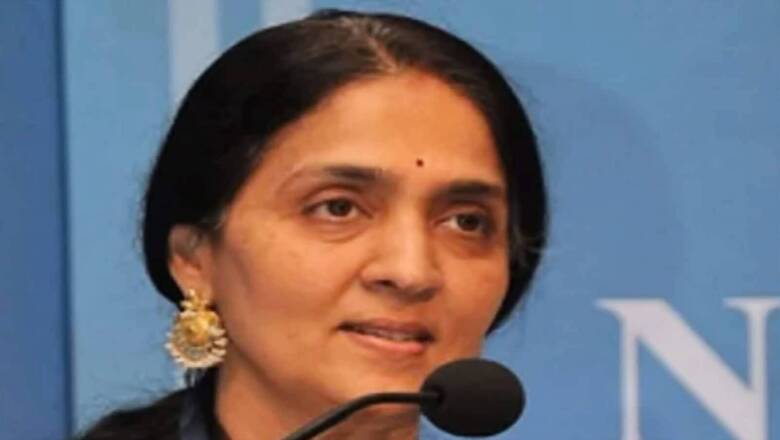
views
The CBI on Friday arrested Anand Subramanian from Chennai in view of fresh facts emerging in the NSE co-location case. This is the first arrest in the case. Subramanian was NSE’s group operating officer and advisor to the MD Chitra Ramkrishna.
As the country’s investigative agencies look into the findings of the capital markets regulator of alleged wrongdoings by former NSE chief. We try to decode what the case is all about.
What is the NSE Co-Location Scam?
The case relates to allegations that certain brokers received unfair preferential access to NSE servers. Stock prices on the trading screen keep changing every microsecond.
Complaint to Sebi
A whistleblower in 2014-15 complained to the Sebi saying some brokers in collusion with a few top NSE officials had abused the co-location facility. NSE was then using the so-called tick-by-tick (TBT) server protocol to relay data to members. The peculiar part about this protocol is how it delivers the information. Normal data protocols send data to all users connected on the network at the same time. But TBT transmits in the sequence of orders received. In other words, the user who gets the access to the system first would recieve data earlier than the rest.
It is alleged that OPG Securities, one of the trading members, was provided unfair access between 2012 and 2014 that enabled it to log in first to the secondary server and get the data before others in the co-location facility.
What happened after the allegation of unfair access in algo trading at the NSE came to light?
Following three letters from the whistleblower, SEBI formed an expert committee under the guidance of its Technical Advisory Committee (TAC) to examine the allegations against NSE. The expert committee found that the architecture of NSE with respect to dissemination of tick-by-tick (TBT) data through Transmission Control Protocol/Internet Protocol (TCP/IP) was prone to manipulation and market abuse. It also found that preferential access was given to stock brokers, as it was possible for a stock broker to log in to multiple dissemination servers through multiple IPs assigned to them.
What is a Co-Location facility?
A co-location is a system that exchanges across the world offer to sophisticated trading members. While the main stock exchange servers in India are in Mumbai, the brokerages using them are spread across the country.
Using normal internet connection to access these systems sometimes leads to data latency, or delay in transmission of data. While the extent of the delay is just a few microseconds, it makes a difference to big traders such as hedge funds and proprietary desks, which trade in huge quantities.
Is Co-Location Facility Illegal in India?
Illegal, no, but you could say it was unfair to those brokers who could not afford it. Non-colocation brokers would receive the prices with a lag, and this lag would be anywhere between a few milliseconds to a second or maybe even more, depending on the physical distance from the exchange’s servers.
Offering co-location was legal even back then but the network architecture for this facility was prone to misuse. A Sebi committee had said the exchange architecture for disseminating tick-by-tick (TBT) data through Transmission Control Protocol/Internet Protocol (TCP/IP) was prone to manipulation. Later, Sebi said NSE did not weigh its drawbacks adequately before introducing it. Critics of co-location have argued that it is the duty of the stock exchange to provide uniform access to all market participants and that high-frequency trading amounts to front running.
Initial Findings in the Sebi Probe
After initial examination of the complaints, Sebi formed an expert committee, which in its preliminary report in 2016 said this facility was prone to misuse.
It also observed that one of the brokers, OPG Securities, was always getting preferential access and sometimes the broker even crowded the servers which impacted other market participants. These initial findings of the expert committee prompted Sebi to deepen the probe. NSE roped in consulting firms EY and Deloitte to conduct a forensic audit into the allegations in various trading segments.
On April 30, 2019, SEBI came down heavily on NSE for alleged lapses in high-frequency trading offered through its co-location facility, directed the exchange to disgorge Rs 624.89 crore, and barred it from accessing the market for funds for six months.
SEBI also asked former NSE boss Ravi Narain and Ramakrishna to disgorge 25 per cent of their salaries drawn during a certain period. They were also prohibited from associating with a listed company or a market infrastructure institution, or any other market intermediary for a period of five years.
Chitra Ramakrishna Under CBI Scanner
The four actors in this almost-fictional case are Chitra Ramakrishna and Ravi Narain, the former MDs and CEOs of NSE, Subramaniam, the exchange’s group operating officer and advisor to MD and the NSE Board itself, whereas a mysterious ‘Yogi’ with whom Ramakrishna shared confidential information and intricate details regarding the functioning. However, now Subramaniam, is in CBI custody. The arrest has been made in the Co-Location case after new developments took place in the wake of SEBI’s order dated February 11. The case was registered in 2018.
On-going Investigation
On February 11, SEBI charged Ramkrishna and others with alleged governance lapses in the appointment of Subramanian as the chief strategic advisor and his re-designation as group operating officer and advisor to MD. Last week and even earlier this week, CBI questioned him for days.
The agency also questioned Ramkrishna in Mumbai and examined various e-mails between mysterious Yogi and Ramkrishna. These conversations were highlighted in order by market regulator SEBI on February 11.
Tax Haven Seychelles
Income Tax Department has already started questioning Ramkrishna, especially on the issue of talks about tax haven Seychelles. There are indications that Enforcement Directorate (ED) may also be roped in to look into any foreign exchange regulation violation. All these actions are taking place after the present NSE brass held a meeting last week with the Finance Ministry and tried to explain action initiated after Ramkrishna’s exit from the exchange in 2016.
Read all the Latest Business News and Breaking News here



















Comments
0 comment